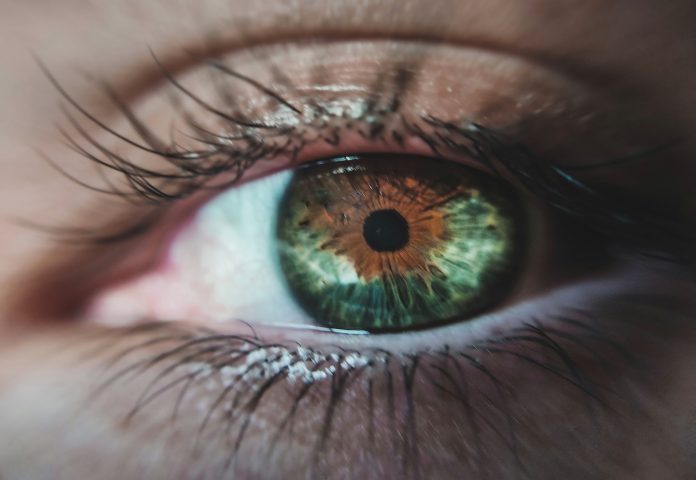Laser surgery for retinal tears is a common procedure to prevent retinal detachment and preserve vision. While the surgery is relatively quick and minimally invasive, understanding what to expect during the postoperative period is essential for a smooth recovery. This comprehensive guide delves into what to expect after laser surgery for a retinal tear, including the recovery process, potential side effects, and tips for optimizing healing and visual outcomes.
Understanding Retinal Tears
Retinal tears often go unnoticed as they are typically painless, but they can manifest as intermittent flashing lights, floaters, or a shower of black dots. These symptoms may become more pronounced with eye movement and are often more noticeable in strong light conditions. While some individuals may experience multiple symptoms, others may not notice any.
Although retinal tears can occur at any age, they are more prevalent in older people and are often associated with the eye’s natural aging process. Factors such as near-sightedness and a family history of retinal tears or detachments can increase the risk of developing retinal tears. Additionally, individuals who have previously experienced a retinal tear are at a higher risk of recurrence.
Laser Surgery for Retinal Tears
Laser surgery is a common treatment for retinal tears, typically performed in an office under local anesthesia. The ophthalmologist uses a laser to create tiny burns around the retinal tear during the procedure. The healing process initiated by these burns helps prevent the tear from progressing to a full-blown retinal detachment. However, depending on the location of the tear, laser treatment may not be feasible in some cases.
The Recovery Process:
Immediately After Surgery:
Patients may experience discomfort or mild pain in the treated eye following laser surgery for a retinal tear. This is normal and can usually be managed with over-the-counter pain relievers such as acetaminophen (Tylenol) or ibuprofen (Advil). Following the ophthalmologist’s instructions regarding postoperative care, including using prescribed eye drops to prevent infection and inflammation.
Vision Changes:
In the days and weeks following laser surgery, patients may notice changes in their vision, such as blurry vision, floaters, or sensitivity to light. These symptoms are typically temporary and should gradually improve as the eye heals. However, it’s essential to report any significant changes in vision or persistent symptoms to your ophthalmologist, as they may indicate complications that require further evaluation.
Activity Restrictions:
During the initial recovery period, patients may be advised to avoid certain activities that could strain the eyes or increase the risk of complications. These may include heavy lifting, strenuous exercise, and bending or straining activities. Following the ophthalmologist’s recommendations regarding activity restrictions is essential to promote optimal healing and minimize the risk of postoperative complications.
Follow-Up Appointments:
Regular follow-up appointments with the ophthalmologist are essential to monitor the progress of healing and assess the success of the surgery. During these appointments, the ophthalmologist will examine the eye, check visual acuity, and evaluate the status of the retina. Depending on the individual’s recovery progress, initial follow-up appointments may be scheduled weekly or biweekly, with less frequent visits as the eye heals.
Potential Side Effects:
While laser surgery for retinal tears is generally safe and effective, some patients may experience side effects or complications during the recovery period. These may include:
- Increased Floaters: Following laser treatment, some patients may notice an increase in the number or size of floaters in their field of vision. This is typically temporary and should resolve as the eye heals.
- Light Sensitivity: Sensitivity to light (photophobia) is common after laser surgery and may persist for several days or weeks. Wearing sunglasses or avoiding bright lights can help alleviate discomfort.
- Eye Redness and Irritation: The treated eye may appear red and feel irritated or gritty for a few days following surgery. This is normal and should gradually improve with time.
- Vision Changes: While vision may initially be blurry or distorted after surgery, it should gradually improve as the eye heals. However, some patients may experience persistent vision changes or fluctuations that require further evaluation by the ophthalmologist.
Tips for Optimizing Healing:
To promote optimal healing and recovery after laser surgery for retinal tears, consider the following tips:
- Rest: Allow adequate time for rest to facilitate healing. Avoid activities that strain the eyes or increase intraocular pressure, such as heavy lifting or vigorous exercise.
- Follow Postoperative Instructions: Adhere to the ophthalmologist’s instructions regarding postoperative care, including prescribing eye drops and activity restrictions. Attend all scheduled follow-up appointments to monitor progress and address any concerns.
- Protect the Eyes: Wear protective eyewear, such as sunglasses, to shield the eyes from bright lights and UV radiation during outdoor activities. Avoid rubbing or touching the eyes to minimize the risk of infection or injury.
- Maintain Good Eye Health: Follow a healthy lifestyle with a balanced diet rich in vitamins and minerals, regular exercise, and adequate hydration to support overall eye health and healing.
- Monitor Symptoms: Pay attention to changes in vision or symptoms such as pain, redness, or swelling in the treated eye. Report any concerns to your ophthalmologist promptly for further evaluation and management.
The Bottom Line
Undergoing laser surgery for a retinal tear is a crucial step in preventing the progression to retinal detachment. While the procedure is relatively quick and minimally invasive, knowing what to expect during recovery is essential. Following retinal detachment laser surgery, patients may experience temporary vision changes, such as blurry vision, increased floaters, and mild discomfort or irritation in the treated eye.
However, with proper postoperative care and regular follow-up appointments with the ophthalmologist, most individuals can expect a successful outcome and a reduced risk of retinal detachment. By staying vigilant and adhering to the recommended postoperative instructions, patients can optimize their healing and safeguard their vision for the future.


